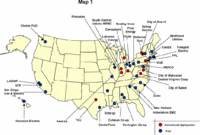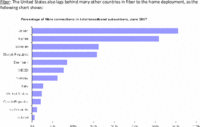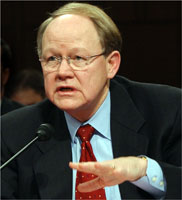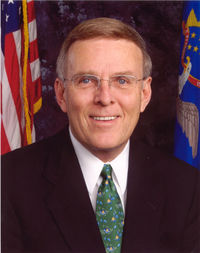 U.S. Commerce Secretary hails “dramatic growth of broadband” in the U.S.,
citing a report from National Telecommunications and Information Administration (NTIA).
That report not only uses the U.S. tinyband definition of 256Kbps as
“broadband”, it still uses ancient metrics such as this:
U.S. Commerce Secretary hails “dramatic growth of broadband” in the U.S.,
citing a report from National Telecommunications and Information Administration (NTIA).
That report not only uses the U.S. tinyband definition of 256Kbps as
“broadband”, it still uses ancient metrics such as this:
By December 2006, 91.5 percent of ZIP codes had three or more competing service providers and more than 50 percent of the nation’s ZIP codes had six or more competitors.So any provider that has service available to at least one user in a ZIP code is counted as a “competitor”.— Gutierrez Hails Dramatic U.S. Broadband Growth, Government Technology, Feb 1, 2008, News Report
Meanwhile, the ARRL says the NTIA report inflates broadband over powerline (BPL) figures: Continue reading








